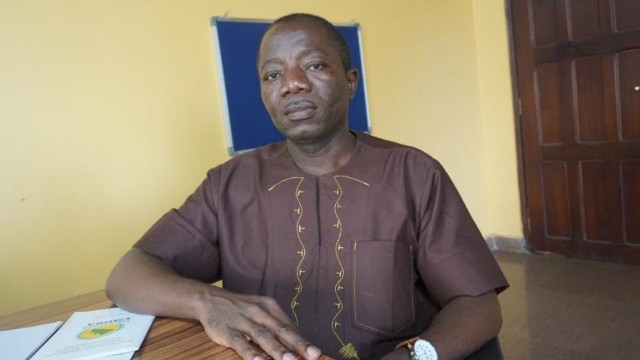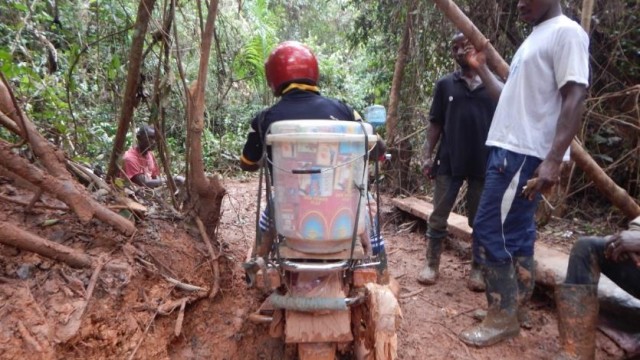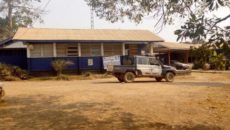MONROVIA, Montserrado – Littered on main streets across Liberia are numerous drug stores and pharmacies that are not tightly regulated, which can pose a threat to the public.
The government has made some efforts in controlling the unregulated nature of the industry by forming the Liberia Medicines and Health Products Regulatory Authority in 2010. However, its general manager has expressed concern over the sale of substandard health products on the local market.
In an exclusive interview with The Bush Chicken, David Sumo disclosed that 80 percent of substandard drugs entering Liberia are from neighboring Guinea.
“The illegal cross-border movement of substandard drugs from Guinea is a major challenge for the LMHPRA,†Sumo said.
He noted that evidence shows that there is a global crackdown on security networks on individuals involved in the sale of illegal substances. Such individuals are beginning to transform their ideas into counterfeiting and manufacturing substandard medicines for sale in countries where the regulatory system is weak, with Liberia being no exception.
Sumo said though Cote d’Ivoire and Sierra Leone are also points of origin of substandard drugs, they capture a small share of the deficient drugs coming in.
He attributed the proliferation of substandard drugs into the country to three major causes, notably the fact that Liberia does not manufacture drugs locally. Sumo also mentioned the over 200 defunct entry points that cannot be properly monitored by the Liberian security forces, leading to easy access to illegal drugs.
Sumo said another factor responsible for the circulation of substandard drugs on the local market is the gap in the health sector, noting “people have the tendency to find the most available means whenever they are finding it difficult to get to the health facility.â€
When an individual falls ill and cannot walk, this person is tempted to purchase substandard drugs from peddlers, Sumo said. “The only way to deal with such issue is to provide an alternative, which is a good source of supply of medication.â€
Due to the proliferation of illegal cross-border movement of goods involving medications, the regulatory authority has secured funding from the government through the Ministry of Finance and Development Planning to decentralize its activities in Nimba and Lofa.
Sumo said if the institution is able to secure additional funding from the government, it will spread its activities to other counties in the western and southeastern parts of the country.

David Sumo, general manager of the Liberia Medicines and Health Products Regulatory Authority. Photo: Zeze Ballah
He cited one instance at the Ganta point of entry in Nimba where some trucks were arrested by Liberian securities containing drugs packed alongside peppers, palm oil, eggplant, and plantains.
“The drugs were under the hot sun of 40 degrees Celsius, which should not be the case,†he said, adding that transporting drugs in such conditions can cause the products to lose their potency.
“It is not safe to transport drugs by trucks from one country to the other without proper storage conditions,†Sumo added. “Instead of the drugs being helpful, they rather become harmful to the individuals using them.â€
He stated that the issue of illegal substandard drugs entering the country is a huge challenge to the LMHPRA because the health products pose a threat to the public.
He also said the need for inter-security agency collaboration, notably Liberia Immigration Service, Liberia National Police, and Drug Enforcement Agency, is vital in tackling the issue.
Sumo said the LMHPRA has adopted a new approach by engaging the media to carry out public awareness. Additionally, the agency is attempting to prevent the drugs even appearing on the market by cutting off known supply routes. If the deficient drugs do make it on the market, Sumo said there would be penalties including the confiscation of health products and a US$500 fine.
Even then, he expressed dismay at what he considered to be weak fines, as some illegal importers carry drugs worth over US$1 Million.
“Liberia as a country is not ready to tackle the issue of substandard health products,†Sumo said.
A Bush Chicken observation into the sale of these substandard drugs found that most of them find their way into rural communities where residents are forced to walk long distances to receive medical care.
Drugs peddlers in these remote rural communities are usually seen with substandard drugs in transparent buckets, plastic bags and on market tables, with Montserrado being no exception.
Drug peddlers involved in the sale of these substandard drugs do not have any formal medical education, which can mean they may prescribe drugs that can exacerbate the existing health problems of those purchasing the drugs.
Featured photo by Zeze Ballah




